PRONG FRONTMAN TOMMY VICTOR – “IT WAS GETTING TO BE RECORDS BY NUMBERS… I DIDN’T WANT TO DO ANOTHER ONE LIKE THAT”
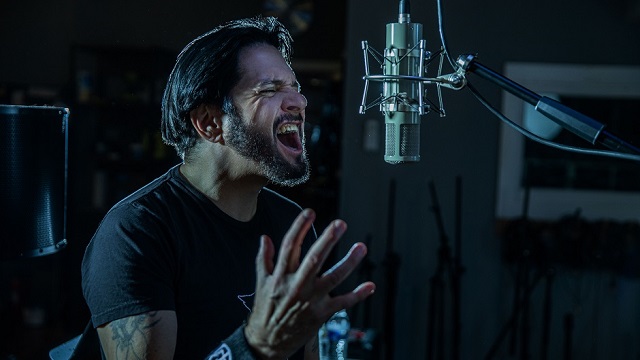
State Of Emergency, the 13th studio album from New York City groove metal gurus Prong, was released October 6 via Steamhammer / SPV. Led by sole original member Tommy Victor on vocals and guitar, this new batch of songs is familiar, yet different. Incorporating elements of punk, thrash, rock, and doom, there’s great variety within the album, yet it’s all undeniably Prong.
The guitar melody in “Non-Existence” exudes warmth. “The Descent” is built on a vicious speed riff, and “Light Turns Black” is reminiscent of Biohazard – another New York band. “Yeah, it’s got that New York hardcore mode, that crossover,” affirms Tommy. “I think that’s reflective of Beg To Differ, that record. I try to definitely have a couple tips of the hat to that record, being one of my faves. I think Biohazard sort of took from that a little bit, and molded it themselves into their own sound. And essentially, all that comes from the Bad Brains, and maybe the Cro-Mags, if you dig deeper into the origins of where that comes from.”
Speaking of origins, toward the end of the State Of Emergency album is a song called “Back (NYC)”. Tommy is from New York City. Prong was formed in New York City in 1986. In fact, Tommy was a sound engineer at the legendary CBGB music club. Now, he provides the background to the song inspired by his home turf. “When I talked to Oli Hahn from SPV, after I agreed to doing another record, he was like, ‘When can you do it?’ I was in the process of moving. First, I said, I may be moving, and if that happens, I would like to do it when we move back to New York. Then we got the go-ahead and we moved back. I needed to settle in a little bit. I wanted to do all the writing and recording here. People ask me, ‘How come it took so long?’ There was the pandemic, then I had a couple of children, then we moved. All that added into why it took so long to make the record. But the actual writing was all done here. I definitely felt a difference in my mentality, and I became a little nostalgic at the same time. That’s a good concept for a song, and I was able to write a lyric. Interestingly enough, I think that riff and that song – the music, was the first thing I started working on. Everything like that sort of worked out right for this record. The first song that I wrote the music for wound up being the ‘Back in New York’ lyric. And Steve Evetts, the producer. He had moved within weeks, at the same time. His wife got a job on the east coast, and mine did too. It was like, you’ve got to produce the record, this is ridiculous. Cause he did Carved Into Stone, and worked on Ruining Lives too. Then he was moving back here at the same time, it was like this synchronicity – I hate using that, but a lot of things were in place. The stars aligned on this record. And I’m really digging being back here! I live on the Island now; it’s the suburbs of New York City. My sister lives in Brooklyn. Nassau County is sort of the way Queens used to be anyhow, it’s sort of similar.”
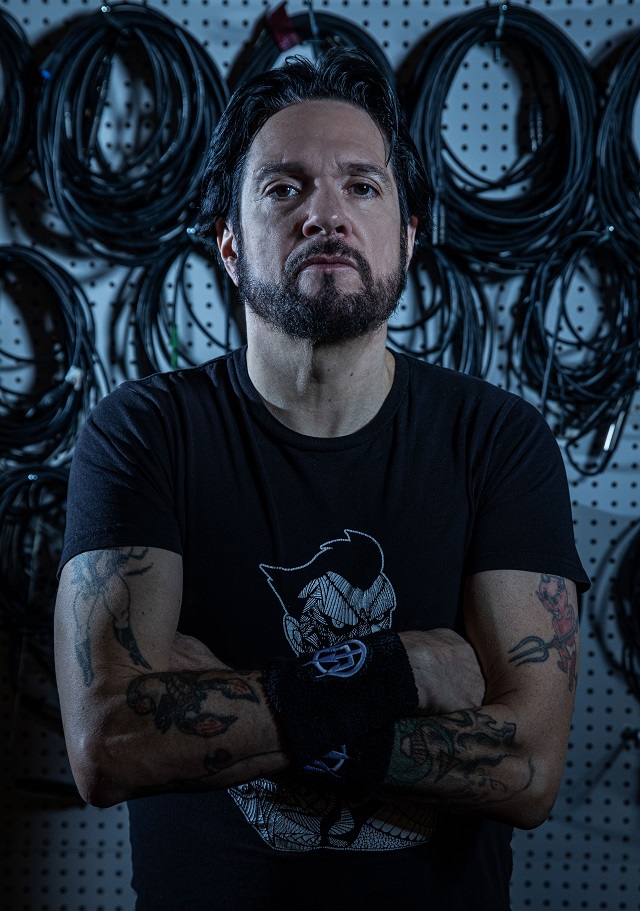
The statement, “I agreed to do another record,” certainly came as a surprise. Understandably, Tommy has been in this game since the mid-‘80s, but it doesn’t sound like there was a burning desire to get these songs out. It comes across more as, okay, I can make some money; pay the mortgage and feed my family. I’ll agree to do another record. “Well, as far as the money goes, that really comes from playing with Danzig. Prong does okay, we do a couple gigs here and there. But all the money to make the record comes in through the advance. I didn’t cheapen out at all. It’s funny. I went around looking at producers. Even though I wanted to use Evetts, I wanted to see who was out there. Some of these guys have these bargain deals, they make these shortcut records; and I didn’t want to do that. Just thinking of the album, it’s a legacy thing. There’s really not anything financially viable; the records don’t sell. You know the whole drill. It was just to keep the legacy going. I didn’t go searching for a record deal. It expired, and if you really want to get into the whole thing – during the pandemic I really didn’t know if I was going to continue. Again, we had a new child, and I was kind of content being a stay-at-home dad. It was different. All these years I was in this tumultuous life I’ve had. Then finally being able to take care of a kid, and have the joys of that, was refreshing. But things happened. We got offered a tour; that was pretty decent money. We went out and did that with Black Label Society, it was really successful. Then I got the call, ‘Are you going to do another record?’ I talked it over with my wife and she didn’t think it was a bad idea. She sort of said, ‘Do two more, and that’s it.’ I think that’s pretty much the plan right now. I’ll do this one, and then when I feel like I can, I’ll do another one, and that’s it.”
As mentioned, producer Steve Evetts (Sepultura, DevilDriver, Symphony X) was behind the board for Carved Into Stone, and Ruining Lives. Then Tommy self-produced the next two Prong albums, X – No Absolutes, and Zero Days; both were engineered by Chris Collier. Now, Evetts is back in the fold. It’s kind of like things have come full circle. “Yeah, we got so many compliments about Carved Into Stone – and these things happen later. When we put it out, we were really disappointed with the reaction, as usual with Prong records. Sales weren’t that great. I really busted my ass on that record! Working with Chris – I’m not saying he’s a shortcut producer. He fully produced Zero Days. By the time we did Zero Days, we had this whole quick method of doing things down. It was getting to be records by numbers… I didn’t want to do another one like that. So, we went back to the grueling Steve Evetts production. He wasn’t as hard on me on this record as he was on Carved Into Stone. After Carved Into Stone, I was like, ‘I’m never having you produce another Prong album because it was just so hard to do.’ The eight hours, ten hours in the vocal booth. The endless guitar overdubs and making everything perfect. I was like, ‘I can’t do this anymore.’ I’m not saying that I went in with Chris and we auto-tuned all the vocals, like everyone does now. ‘Just sing the lyric and then we’ll fix it up.’ That’s all these modern metal bands do now. But we didn’t go as crazy as Steve; everything’s organic. We did it on this record, just because I have a lot of experience with my vocals. I have more experience singing. I know how he operates. I had the guitar parts down. So, it wasn’t really that hard, compared to Carved Into Stone. Yeah, it did come full circle. I think with something like Prong, a legacy band… basically Cleansing was done all au-naturel. There was no Pro Tools back there. This record, I felt was, out of all these new records, is the closest thing to Cleansing.”
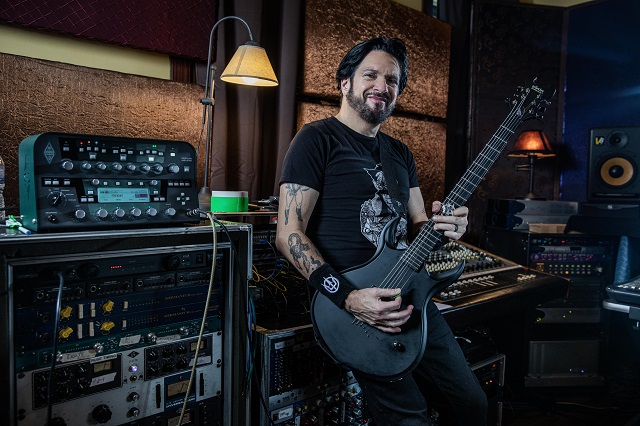
Tommy reflects upon the time spent in the studio recording State Of Emergency. “It didn’t take too long. The basic tracks were done in about three weeks. There was a little break there, I had some Danzig gigs to do. Then I came back and finished up a couple guitar parts. Steve went in and mixed it; I didn’t even have anything to do with the mixing. He did everything himself. Then it was mastered by Arthur Risk; he did a great job. The writing took… maybe a little over two months. Like three months to write everything, pretty quick.”
Producer Steve Evetts also plays bass on State Of Emergency. “Yes, he does.” And Griffin McCarthy plays drums. “Yeah, he did the drums on it. He’s not playing in the band anymore.” State Of Emergency could be called a Tommy Victor solo album, but obviously the name Prong was used for recognition purposes. “Yeah, all the records have been that way unfortunately. Collier helped with writing on Zero Days. Some of the songs on No Absolutes, Erie Loch and I wrote. So, I had a couple of collaborations here and there, through the new Prong records. Not to sound like an asshole, but the songs that I did write myself seem to be the ones that we end up playing live anyhow, like “Ultimate Authority”, “However It May End”, “Revenge Best Served Cold”. Those are the ones that were my songs entirely. So, I was like, I’m going to write the whole record myself on State Of Emergency. I don’t really need anybody. I’m not pressed for time. It wound up being faster. I got sort of lazy, maybe, or talked into ‘You should write with other people.’ We did so many records in succession for a while there; too many. This one, I had a little time to breathe. I’m going to settle into New York. I’m going to figure out how to do this, and just did it on my own. I really didn’t need anybody else to write the songs.”
Not only is State Of Emergency the album title, it’s also the name of track two. That phrase has been bandied around since the ‘70s. There’s always been a state of emergency, whether it’s globally, environmentally, whatever. Are we really in a state of emergency in 2023? “No,” answers Tommy, quite emphatically. “That’s the thing, it’s almost tongue-in-cheek. But, it is a personal state of emergency. I sort of got the idea from ‘The Descent’ lyric, which is like he’s on the edge, basically from social media. He has no self-esteem. He’s just completely gone, comparing himself to other people; he just feels lesser than. I think a lot of people are in that personal state of emergency where they’re living this unnatural lifestyle through social media, cyber-everything. As we know, the cliché – the kids don’t talk to each other anymore. There’s no kids playing outside. It’s all that stuff. So, I think culturally, or spiritually, we’re in a state of emergency.”
“But the fear tactics and the propaganda of media in order to sell something through state of emergency is the other side of it where… for years, because I was living in California, in LA actually. Every summer, my sister would ask, ‘Are you by the fires?’ It’s like, no, I can see it smoking somewhere. This happens every year. ‘Well, they’re saying on the news that the whole city is burning down.’ Yep, I know. They say the same thing every year, and you call every year. It’s like, ‘The fires! The fires!’ Yeah, these forests, they burn. I don’t know what the reason is but come on already. That’s just how I feel about it. It’s this panic that we’ve been put through. Post-pandemic, and during the pandemic; like you said, it’s been going on since the ‘70s. But we’ve really experienced it more recently. It’s just crazy. In LA, the weather’s fantastic. Even during the pandemic, I’m jogging. Everyone was like, ‘Stay in your house! Don’t go out!’ I would go out jogging, and there’s not that many pedestrians anyhow in LA to begin with; people drive. It’s beautiful weather, a nice breeze. I’d be jogging through the neighborhood, and these people with visors on, masks underneath the visor, they see me coming, and they’d be like, ‘Oh my God!’ They run across the street to the other side, cause I wasn’t wearing a mask. I’m not going to jog with a freaking mask on. Everywhere I was going, people were running for their lives. ‘There’s this guy jogging through the neighborhood without a mask! Call the police!’ It was unbelievable! So, yeah, we were really part of that lockdown out there. In a way, it was kind of cool. Apart from not being able to go anywhere, and not buy anything, and not shop. We had a young child, and we couldn’t really browse for stuff for him. He’s kind of anti-social now because of the whole thing. Now, they may be trying it again. They’re not going to end with the state of emergency stuff. They’ll keep going, and maybe they’ll fuel more lyrics for the next Prong record.”

The artwork adorning State Of Emergency is a great image, and you can really read a lot into it. “Marcelo Vasco did it. I went through… I don’t know… maybe a thousand artists. I wanted to get this dialed in, this cover thing. The last several album covers were done by one guy, and I’m not saying he was forced upon me by management, but sort of like that. So, I wanted to get a guy that I thought was going to really reflect what I was trying to do on this. It was an easy thing. I got in touch I go, ‘Dude, I love your stuff. Would you be interested in doing a Prong cover?’ He said, ‘Of course.’ He’s done a Slayer cover; he’s done a bunch of stuff. He goes, ‘I want the lyrics.’ So, we discussed it a lot, what the lyrical content was. Without him asking anything about what I wanted with the graphic, he came up with the whole thing. It was perfect, simple as that! It’s a little dystopian; I didn’t even use that adjective when I was talking with him. The colors are exactly cool; they’re very Prong – the red and the dark tones. We’ve always had this thing with blindness, sensory deprivation, and mass media. Corruption is all in that imagery; absolutely perfect job he did.”
The final track on State Of Emergency is a cover of “Working Man” by Rush. That song first came out in 1974 on Rush’s self-titled debut album. Tommy recalls his introduction to the Canadian Three-piece led by Geddy Lee. “I got that first Rush record, heard about them in Creem Magazine – this band looks heavy. They said they sound like Sabbath and Zeppelin – well, that’s up my alley! I got the record, and I loved it! Then I went to see them, when Fly By Night came out, and they’d sort of changed. But I still think that first Rush record was more in line with the stuff that I liked. I guess back then, you had Budgie, Sabbath – those heavy, doomy kind of bands. Rush was in that mode. There wasn’t that many metal bands. I really got into that record. I think it was the same year Montrose came out, and the Nugent record. It was this new breed of North American metal. The fact that they were a trio was cool. The album cover… actually the Power Of The Damager cover we sort of stole from the back of the first Rush cover. I always liked these guys exploding, I thought that was a cool cover.”
Prong did an amazing version of “Working Man”. It’s a very blue-collar song, and Prong has been a blue-collar band, a working man’s band, from day one. “If you’re going to do a Rush song, that’s the one, based on the lyric. And it does fall in line with ‘Snap Your Fingers, Snap Your Neck’. Sort of a working anthem. And the song ‘The Descent’, the first song (on State Of Emergency), it’s this guy in crisis. The working man, the guy that’s narrating on that song, he’s in crisis too. So, it’s like bookends of the record, where he’s sort of like the 2024 version of the guy in the 1974 version. This guy’s just working his ass off and he’s going nowhere. The other guy is just consuming media and he’s going nowhere. Like I said earlier, the flow of the record, I was conscious of Cleansing, where it started out heavy, and started to get groovy a little bit. Then it would start to get ‘weird’, and it would have this bombastic ending. I think ‘Test’ is six minutes long; I wanted a long song to end the record with.”
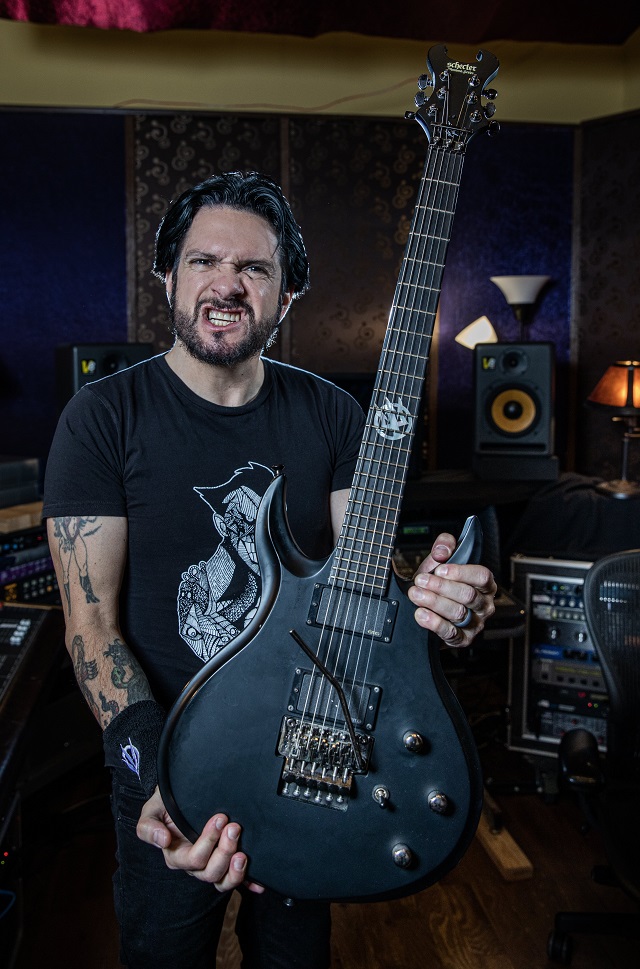
Delving deeper into Tommy’s lyrics, “Disconnected” contains the line: “It’s too much effort required of me, to be weary of your beliefs.” “I don’t want to elaborate too much because I like a lyric like that to stay open to interpretation,” says Tommy. “Basically, that song, it’s a little bit different than the whole State Of Emergency concept. Some people try to change things about themselves, and if you’ve been around them a long time… suddenly it’s, ‘I’m a different person now.’ I’m usually weary of that, when they have to announce that. It’s sort of about that, a general distrust of somebody that has not necessarily burned me in the past, but has had poor behavior and has done crappy things, and they haven’t really proven themselves. Now they’re trying to tell me that they found God or something. That’s one of the aspects of it. Or, it’s just somebody trying to tell me something that I know isn’t true. To simplify the whole thing – don’t try and make me believe what you do. In this day and age, you can’t really approach people on those things. You just have to say, ‘Yeah, yeah, yeah.’ So, my response is, I’m going to put this in a song. I can be a little less kind in my lyrics than in normal life. It’s true. You’ve got to watch your ass these days.”
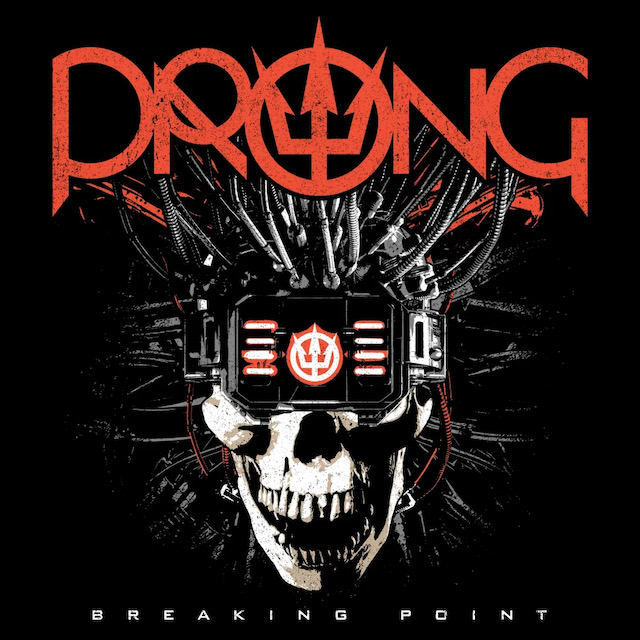
Prong released a lyric video for “Breaking Point”, which could be interpreted as an anti-government song. “Ah, it could be. We live in an era where you can’t even say anti-government. You can’t be anything that the media tell us not to be. You’re making me reflect on the song pretty well here, where they have this agenda. They’re telling us how to think, and if we don’t, we’re in trouble. It’s very dangerous times on that end. I think people are fed up with it, I really do. It also reflects on the pandemic, that song, cause it’s not human nature to be locked down. I think people would rather risk their health than go through that again. I saw it, cause we were out on tour with Black Label. It was sort of the end of the pandemic; it didn’t really officially end, and we were out on a two-month tour. We were masked up – the only time we didn’t have masks on was on stage. People had to wear a mask to go into the venue, but as soon as they got in, they took them off and no one gave a sh*t. Bar sales and merch sales were never more than that! People were spending so much money, like it was the end of the world. We sold so much merch on that tour. Black Label have all these unbelievable options, you figure we’re not going to sell any merch because everybody’s going to buy BLS merch. But it was like, you’ve got to be kidding me! We sold that much? We were doing so well on that tour. Every show was sold out. People going absolutely crazy. I’m not hiding on the tour bus cause I’m afraid of getting Covid; I’m afraid of these people. They’re just so crazy! People were having sex in the open, all this crazy sh*t going on, on that tour. It was like, wow! This is real human nature going on. I saw the breaking point. I’d never seen that before. There was no complacency anymore. It was beyond that.”
It sounds like that would have made a great documentary. “I know! It really would have been. I didn’t even think of that. You know how things go by so fast, if we were to show that to people now – this was a couple years ago. People would be like, ‘Really, we were like that?’ The whole masking, and everyone had to show their card, blah, blah, blah. All this crazy stuff that was going on.”
(Photos courtesy of Nathaniel Shannon)


No comments:
Post a Comment